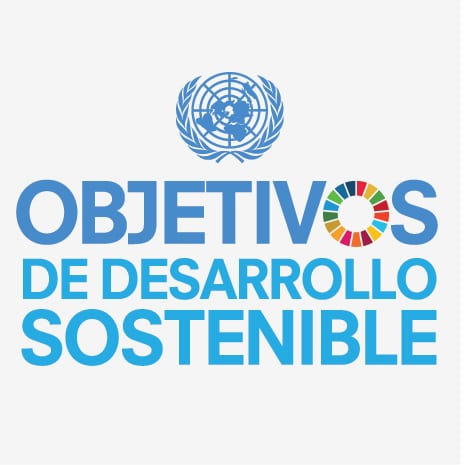 Vigilancia Tecnológica
Vigilancia Tecnológica
Thermal Solutions for Green Buildings
BIOBUILD, a Horizon Europe funded Innovation project has been launched with a €4.9 million budget to provide thermal solutions for energy efficient buildings using fully bio-based building materials. The project incorporates bio-based phase change materials (bioPCMs) into solid wood and fibers bound by plant oil resins, lignin and fungal mycelium. With its innovative approach, BIOBUILD aims to reduce up to 20% of energy consumption in buildings.
Currently, buildings in Europe account for 40% of energy use and about 95% of the binders used in wood-fiber composites are fossil-derived. Non-biobased materials such as bricks, concrete, plastic, gypsum, glass and rock wool have high environmental footprints, limited recycling possibilities and should be replaced with bio-based, sustainable materials.
As part of the new changes in the EU legislation, all buildings must be carbon neutral by 2030, transitioning to fully energy efficient buildings. Energy consumption should also be reduced by at least 11.7% at EU level. Accordingly, decreasing energy consumption and developing cleaner energy sources are key in reaching the EU’s climate goals and reducing its dependency on non-EU imports.
The BIOBUILD SolutionBIOBUILD focuses on bio-composites as environmentally friendly building materials with additional functionalities for energy storage. This innovative approach will integrate bioPCMs into solid wood and fibers bound together by plant oil resins, lignin and fungal mycelium. BioPCMs have the ability to absorb and release thermal energy as they change phase from solid to liquid and vice versa. By incorporating bioPCMs into building materials, BIOBUILD enhances the thermal mass of the building elements, enabling them to effectively store and regulate heat in a smart way.
Figure 1: Using BioPCM in Wood Composites during a) releasing heat and b) absorbing heat (BPCM: bioPCM, EP: Ethyl palmitate as a bioPCM)The project explores advanced insulation materials and techniques to minimize heat loss and improve thermal performance. This includes the use of sustainable lightweight materials such as wood fibers and recyclable materials which offer advanced thermal insulation properties compared to traditional insulation materials. These novel materials are fully recyclable and sustainable without toxic ingredients contributing to an imminent transition to decarbonization in major industrial sectors. The BIOBUILD project will design and showcase protype wooden houses with innovative wallboards and parquet and evaluate energy saving performance as well as recyclability in Sweden and Spain.
Figure 2: The BIOBUILD ConceptOne step towards a Greener Future The transition towards climate neutrality as set out in the European Green Deal (EGD) calls for innovative and rapid changes. The BIOBUILD project will pave the way to further achieve the EGD goals and speed up innovation in buildings, contributing to a wider use of bio-based materials and expanding the bio-based economy to benefit civil society and the environment. The sustainable bio-based materials will potentially contribute to the imminent transition to decarbonization in major industrial sectors.
BIOBUILD’s project journey will last four years and is expected to have the following impacts:
“The concept of BIOBUILD starts with solid wood and fibers which are converted to novel biomaterials with added functionalities. Our motto and proud mission is ‘using wood, adding function and value to wood, recycling/reusing wood.” – SLU Team at the Division of Wood Science and Technology, Swedish University of Agricultural Sciences
With years of experience and knowledge of bio-composites for construction industry, and active involvement in research on energy smart bio-composites of wood materials and bio-based phase change materials (bioPCM), the team at SLU aims at developing and bringing the technology to pilot scale test and finally to the market.
Kick-Off Meeting at the SLU Campus on January 18, 2024 in Uppsala, Sweden – Image Credits: RTDS AssociationThe consortium consists of 14 partners from 6 EU member states (Austria, Belgium, Italy, Spain, Romania, Sweden) and the UK as Associated Partner. During this meeting, partners presented and discussed their work packages that serve as the foundational basis of this innovative project.
Currently, buildings in Europe account for 40% of energy use and about 95% of the binders used in wood-fiber composites are fossil-derived. Non-biobased materials such as bricks, concrete, plastic, gypsum, glass and rock wool have high environmental footprints, limited recycling possibilities and should be replaced with bio-based, sustainable materials.
As part of the new changes in the EU legislation, all buildings must be carbon neutral by 2030, transitioning to fully energy efficient buildings. Energy consumption should also be reduced by at least 11.7% at EU level. Accordingly, decreasing energy consumption and developing cleaner energy sources are key in reaching the EU’s climate goals and reducing its dependency on non-EU imports.
The BIOBUILD SolutionBIOBUILD focuses on bio-composites as environmentally friendly building materials with additional functionalities for energy storage. This innovative approach will integrate bioPCMs into solid wood and fibers bound together by plant oil resins, lignin and fungal mycelium. BioPCMs have the ability to absorb and release thermal energy as they change phase from solid to liquid and vice versa. By incorporating bioPCMs into building materials, BIOBUILD enhances the thermal mass of the building elements, enabling them to effectively store and regulate heat in a smart way.
Figure 1: Using BioPCM in Wood Composites during a) releasing heat and b) absorbing heat (BPCM: bioPCM, EP: Ethyl palmitate as a bioPCM)The project explores advanced insulation materials and techniques to minimize heat loss and improve thermal performance. This includes the use of sustainable lightweight materials such as wood fibers and recyclable materials which offer advanced thermal insulation properties compared to traditional insulation materials. These novel materials are fully recyclable and sustainable without toxic ingredients contributing to an imminent transition to decarbonization in major industrial sectors. The BIOBUILD project will design and showcase protype wooden houses with innovative wallboards and parquet and evaluate energy saving performance as well as recyclability in Sweden and Spain.
Figure 2: The BIOBUILD ConceptOne step towards a Greener Future The transition towards climate neutrality as set out in the European Green Deal (EGD) calls for innovative and rapid changes. The BIOBUILD project will pave the way to further achieve the EGD goals and speed up innovation in buildings, contributing to a wider use of bio-based materials and expanding the bio-based economy to benefit civil society and the environment. The sustainable bio-based materials will potentially contribute to the imminent transition to decarbonization in major industrial sectors.
BIOBUILD’s project journey will last four years and is expected to have the following impacts:
- Reduced environmental footprint & maximized resource efficiency in the construction industry
- Reduced energy consumption up to 20% & improved comfort in buildings
- Wider use of bio-based materials in buildings
- Expanded use and re-use of wood-based products
- Improved climate-neutrality of waste management in cities
- Increased use of innovative, sustainable and formaldehyde-free binders
- Decreased use and dependance on fossil-based products in construction
“The concept of BIOBUILD starts with solid wood and fibers which are converted to novel biomaterials with added functionalities. Our motto and proud mission is ‘using wood, adding function and value to wood, recycling/reusing wood.” – SLU Team at the Division of Wood Science and Technology, Swedish University of Agricultural Sciences
With years of experience and knowledge of bio-composites for construction industry, and active involvement in research on energy smart bio-composites of wood materials and bio-based phase change materials (bioPCM), the team at SLU aims at developing and bringing the technology to pilot scale test and finally to the market.
Kick-Off Meeting at the SLU Campus on January 18, 2024 in Uppsala, Sweden – Image Credits: RTDS AssociationThe consortium consists of 14 partners from 6 EU member states (Austria, Belgium, Italy, Spain, Romania, Sweden) and the UK as Associated Partner. During this meeting, partners presented and discussed their work packages that serve as the foundational basis of this innovative project.






